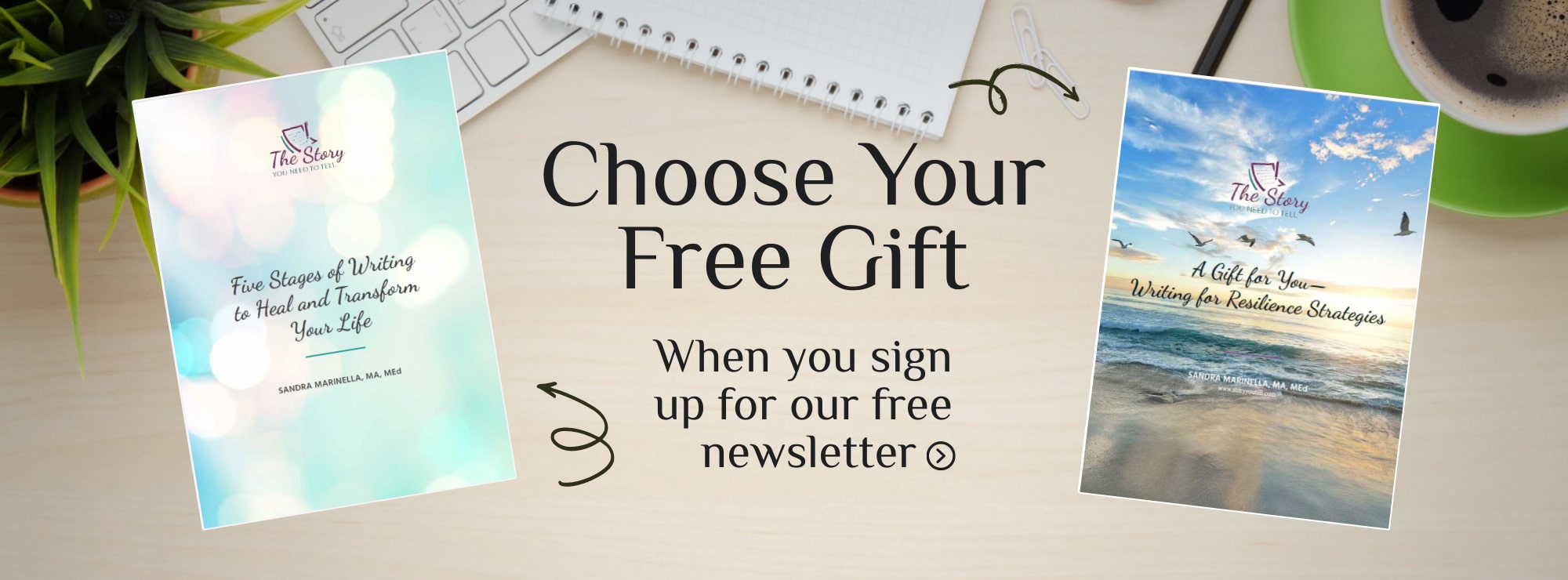Finding Meaning
Stories are my passion. Everyone around me knows this. I have long said that humans are story-making beings, but after reading the work of social psychologist Timothy Wilson, I think we are also meaning-making beings. Wilson explains that we develop stories to help us understand ourselves. To make our meaning. To help us find happiness. (See Wilson’s book Redirect.)
Meaning-making sounds like a messy business, but I found it fascinating to explore through the lens of our stories. I suspect we all have themes or even metaphors that can help us understand ourselves. Can’t we see threads of meaning woven through our lives? One of my threads is clearly cancer. I have had it, but long before I became a survivor, cancer knocked on my door, hoping to be my teacher. This is how that journey began.
At age four I loved playing crazy eights with my eight-year-old neighbor, Sandy. We thought it was funny we had the same name. While my birthday missed the cut-off for starting kindergarten, Sandy didn’t go to school because she had leukemia, and her immune system was weak. At the time nothing about that seemed strange to me. We played cards, enacted life stories with our dolls, and tried to twirl like the ballerinas we wanted to be. We spent whole days together–and then we didn’t. Sandy went back to the hospital, and I don’t believe she ever came out.
I remember my mother talking to me about Sandy dying, and I struggled with what she was saying, and I can’t be sure, but I think I cried. Afterwards I remember going downstairs to our basement that my dad was turning into a playroom with black and white vinyl floors. I tried to twirl as I had often done for Sandy, but it didn’t feel right. My stomach fluttered uneasily so I stopped. Instead, I set out all my dolls. A gesture to honor Sandy, I thought.
Then I began to sing. Loudly. Now my mother says I was born singing—and off-key. By age four everyone (but me) knew I had no hope of being the Taylor-Swift-type prodigy of my day, but I did know how to make up a song and belt it out into the world with the force of a tornado.
At this time in my vinyl-floored basement, I did exactly that. I sang for Sandy. To tell her I loved her. To tell her I missed her profoundly. For I did. I have no clue what kind of gibberish burst out of me, but what I do know is that I sang with as much heart as Celine Dion used to sing My Heart Will Go On. And as sometimes surprises us, there was this feeling of being heard. Perhaps by Sandy. God knows, I was singing loudly enough that if it is possible, she might have heard—and it felt she did. But eventually I realized my mom was sitting quietly on the basement stairs, tears in her eyes. Then I went and hugged her.
But now, decades later, as I write this, I realize that this was one of my first attempts to make meaning of what was happening in my life. At four, I didn’t write in a journal or consciously reflect on my personal meaning as I do now. But I understood a death had happened and that I needed to find a way to take the pain and make a peace with it. By finding my words and singing, I believe I did.




